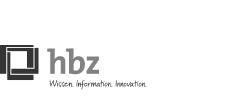

Speakers
Julia Beck
Julia Beck is a developer at Frankfurt am Main University Library. After her degree in Computer Science and Language Documentation at Kiel University in 2014, she started her current position in which she is implementing a VuFind-based search portal for the "Specialised Information Service Performing Arts". In this context, she is modeling Linked Open Data from heterogeneous metadata gathered by libraries, archives and museums from the performing arts domain. In 2018, she also developed a prototype for a search portal for the cultural heritage of Rhineland-Palatinate based on Hyrax and Spotlight.
Pascal Christoph
Pascal has been employed at the North Rhine-Westphalian Library Service Center (hbz) since 2008 as developer and administrator of Open Source software with the scope of LOD working on lobid. Blog
Karen Coyle
Karen Coyle is a librarian with over four decades of experience with library technology. She engages in a variety of areas relating to digital libraries. Karen has published dozens of articles and reports, most available on her web site, kcoyle.net. She has served on standards committees including the MARC standards group (MARBI), NISO committee AX for the OpenURL standard, W3C SHACL and DXWG groups, and was an ALA representative to the e-book standards development that led to the ePub standard. She follows, writes, and speaks on a wide range policy areas, including intellectual property, privacy, and public access to information. She is currently investigating the possibilities offered by the semantic web and linked data technology. She chairs the Dublin Core Application Profile interest group.
Marie Destandau
Marie has been working as a web designer and developer from 2005 to 2014, until she joined Doremus project at Philharmonie de Paris. She is now doing a Ph.D. in Human–computer interaction at INRIA, the French national research institute for the digital sciences. Her topic, Interactive Representation Techniques for the Web of Data, is about finding semi-automatic visualisations, optimised for human understanding, to present Linked Data.
Kai Eckert
Kai Eckert is professor for Web-based Information Services at Stuttgart Media University and codirector of the Institute for Applied Artificial Intelligence. His research involves the application of natural language processing and artificial intelligence in fields including cultural heritage, open science and smart cities. Recent projects include ConfRef.org, a collaboration with SpringerNature to create an open dataset on scientific conferences; JudaicaLink, a knowledge graph for Jewish studies; and CAIUS, a collaboration with the University of Mannheim to investigate consequences of artificial intelligence on urban societies. Kai teaches in the Information Science program of Stuttgart Media University, where he develops new courses to introduce technical concepts.
Matias Frosterus
Matias Frosterus is working as an information systems manager at the National Library of Finland. His main interests are in making library metadata more interoperable both within as well as outside of the library sector. His background is in linked data and semantic web research. He also chairs the LIBER Linked Open Data Working Group.
Péter Király
Péter is a cultural heritage/digital humanities software developer and researcher. As a member of Göttingen eResearch Alliance team he helps campus members in research data management activities. He works in different fields, such as searching, presentation and quality measurement of cultural heritage metadata, long term archiving, Digital Humanities. He actively contributed to different Open Source and Open Data projects, eXtensible Catalog, Europeana, Project Gutenberg, Göttingen Data Science Meetup, and Hungarian Electronic Library, just to name a few. He is an editor of the Code4Lib Journal.
Florian Kräutli
Florian Kräutli is based at the Max Planck Institute for the History of Science in Berlin where he coordinates the digital aspects of research projects and the digital strategy of the institute. His PhD, completed at the Royal College of Art, London, is concerned with knowledge discovery in digital collections through novel data visualisation methods. Previously, Florian completed an MSc in Cognitive Computing at Goldsmiths, University of London, focussing on philosophy of perception and artificial intelligence, and originally trained as a designer at the Design Academy Eindhoven (NL).
Raphaëlle Lapôtre
Raphaëlle Lapôtre has been working at the BnF since 2015 as the product owner for the data.bnf.fr website in the metadata department. She is particularly involved in Linked Data and data visualisation.
Niklas Lindström
Niklas has a background as a consultant in web and data technologies, was part of the W3C RDFa 1.1 working group and a co-author of JSON-LD 1.0. He now works as a systems developer at the National Library of Sweden, focusing on linked data structures, semantics, protocols and interoperability.
Felix Lohmeier
Felix Lohmeier has been working as an IT consultant for libraries since 2016. He previously worked at university libraries in Göttingen, Dresden and Hamburg. His favorite tool is OpenRefine, for which he develops a command line interface.
Lucy McKenna
Lucy McKenna is in the final year of her PhD with the ADAPT Centre in Trinity College Dublin. Funded by Science Foundation Ireland, ADAPT is a multi-institutional dynamic research centre focused on developing next generation digital technologies. Lucy's research is in the area of Linked Data accessibility for libraries. Lucy obtained a Master in Library and Information Studies from University College Dublin in 2015.
Felix Ostrowski
Felix does web research & development. He helps cultural heritage institutions with anything digital. Before founding graphthinking GmbH, he worked as a research assistant at the Berlin School of Library and Information Science and as a software developer and repository manager at the North Rhine-Westphalian Library Service Centre.
Magnus Pfeffer
Magnus Pfeffer is professor for Information Management at Stuttgart Media University and the dean of studies (program manager) for the information sciences program. His research is focussed on metadata management, ontologies and automatic classification. His latest research project "Japanese Visual Media Graph" is an international collaboration between researchers from the fields of media studies, Japan studies and information science to create a comprehensive database of Japanese Visual Media using data accumulated by enthusiast communities.
Adrian Pohl
Since 2008 Adrian has been working at the North Rhine-Westphalian Library Service Center (hbz) in Cologne, Germany. He is primarily working on hbz's linked open data service lobid focusing on project management, metadata and RDF vocabularies. He is co-chair of the SWIB programme committee.
Tiziana Possemato
Tiziana Possemato holds a degree in Philosophy (La Sapienza Rome), diplomas in Archival Science and Library Sciences (Vatican Schools) and a Master’s degree in Library Sciences (University of Florence). She has led numerous projects for library automation, analysis, mapping, conversion, and for the transformation in Linked Open Data and the publication of catalogue data from numerous institutions. She is the Chief Information Officer of Casalini Libri, and founding managing partner of @Cult.
Jarmo Saarikko
Jarmo Saarikko is working as an information specialist at the National Library of Finland. He is currently working on a project to transfer the Finnish Libraries from the use of monolingual Finnish and Swedish general thesauri to the use of the multilingual General Finnish Ontology (YSO) and the Finnish genre and form vocabulary (FGF). He has a long background in special libraries and their use of library databases, electronic resources, institutional repositories and research information systems. He has previously worked on forestry terminology and has edited the forest decimal classification (GFDC) in several languages. He holds a Licentiate degree in Zoology from the University of Helsinki where he studied the behavioral ecology of shrews. orcid
Ricardo Santos Muñoz
Ricardo Santos has been working at the National Library of Spain (BNE) since 2002. He has worked there as Authority Control expert, and from 2018 as Head of Technical Services Department, in charge of Cataloguing and Authority Data Services and Metadata Production. He also represents the library in international projects and associations, such as VIAF, ISNI or IFLA's Cataloguing Section. He's in the "library side" of the BNE's Semantic Web flagship project datos.bne.es, trying essentially to make the most of the library data, fitting it into linked data-friendly structures, and trying at the same time to have minimum impact on daily work in cataloging routines.
Saskia Scheltjens
Saskia Scheltjens (BE/NL, 1970) studied Dutch and English Literature and Linguistics, and Information and Library Science at the University of Antwerp (Belgium). She is an experienced information manager who has worked in the academic and museum world in Belgium and the Netherlands, often initiating and leading change. She is the co-founder of the Ghent Centre for Digital Humanities and the co-author of the current web strategy of the Ghent University Library. In 2016 she joined the Rijksmuseum in Amsterdam to set up a new department called Research Services in which the Research Library, the Collection Information department, Collection Archives, Collection IT and Public Information Services work more closely together. Together with her team she is working on tools and services for researchers on top of extremely hybrid, rich and open collection data. She is fascinated by the interdisciplinary possibilities and responsibilities of digital research and a strong advocate for fair and sustainable open data and systems within the digital heritage world.
Karen Smith-Yoshimura
Karen Smith-Yoshimura has been working with research institutions affiliated with the trans-national OCLC Research Library Partnership for over twenty-five years. She focuses on issues related to the metadata needed to describe and provide access to the multilingual resources managed by libraries, archives, museums and other cultural heritage organizations. Her most recent work studies identifiers and linked data. Karen regularly blogs at http://hangingtogether.org/; her publications are listed at https://www.oclc.org/research/publications/all.smith-yoshimura-karen.html Karen worked with the Library of Congress and the Chinese Character Code for Information Interchange's Chinese Character Analysis Group to develop the East Asian Character Code Set for Bibliographic Use, an American standard (Z39.64) that preceded Unicode. She participated in the founding of the Unicode Consortium and served on the US Technical Advisory Committee that contributed to Unicode becoming an international character set standard now used globally.
Owen Stephens
Owen Stephens has been working in libraries and associated services for 20 years and has strong technical knowledge and strategic experience. Owen is currently one of the core team of developers for OpenRefine and regularly delivers training on using OpenRefine at the British Library as part of their internal digital scholarship training programme. Owen was the main author of the original Library Carpentry OpenRefine lesson, and continues to be one of the lesson maintainers. Owen started to develop an interest in the semantic web and linked data in libraries while working at Imperial College, and later held the position of Project Manager for the Lucero project at the Open University, which published University data (including library data) as RDF. In subsequent roles Owen has maintained an interest in the publication of linked data.
René Voorburg
René Voorburg works at the KB, the National Library of the Netherlands, as a product manager for the metadata and storage infrastructure that is the foundation for dataservices and websites like Delpher, offering public access to approximately 2 million digitized books, periodicals and newspapers.
Marcia Lei Zeng
Marcia Lei Zeng is Professor of Information Science at Kent State University. She holds a Ph.D. from the School of Computing and Information at University of Pittsburgh. Her research interests include knowledge organization systems (taxonomy, thesaurus, ontology, etc.), Linked Data, metadata, smart data and big data, database quality control, semantic technologies, and digital humanities, with over 100 research papers and 5 books. Her research projects have received funding from the NSF, IMLS, OCLC, Fulbright, and others. She has chaired or served on committees, working groups, and executive boards for IFLA, SLA, ASIS&T, NISO, ISO, DCMI, ISKO, and W3C. Currently she is serving as the chair of the iSchools Consortium Digital Humanities Curriculum Committee and an Executive Board Member of the International Society for Knowledge Organization (ISKO).
ZBW
Joachim Neubert
T. +49-(0)-40-42834462
E-mail j.neubert(at)zbw.eu
hbz
Adrian Pohl
T. +49-(0)-221-40075235
E-mail
swib(at)hbz-nrw.de
Twitter: #swib19

